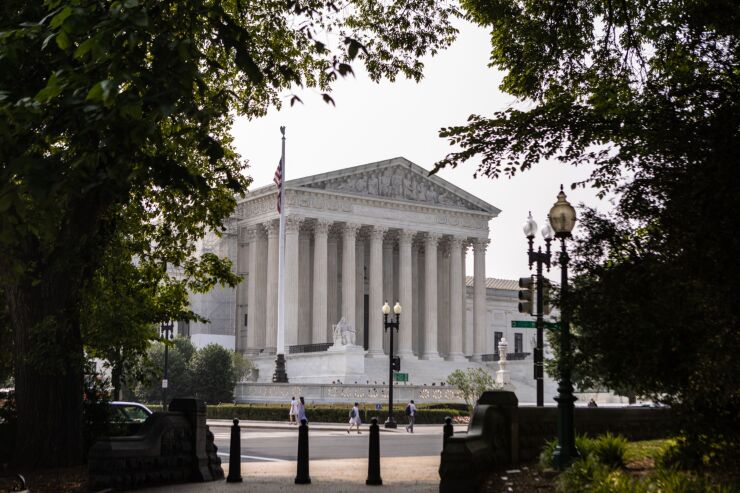
Debit network price controls have been in effect since 2011 and credit network price controls may soon be introduced by the settlement of a longstanding lawsuit. Republican Sens. Ted Budd, Thom Tillis, Steve Daines, Bill Hagerty and Katie Britt
Interchange prices set by statute, regulatory diktat or lawsuit settlements cannot match the market's massive, distributed intelligence. Prices freely set in competitive markets dynamically allocate resources to optimize holistic value.
The Secure Payments Act would require the Fed to stay its proposal to slash Congress' debit-interchange price cap until it completes a study of the cut's effects on consumer costs and the wider economy and considers the results. The senators have lost sight of the fact that Congress, not the Fed, makes policy. In the Dodd-Frank Act's Durbin Amendment, Congress instructed the Fed to establish an interchange ceiling permitting debit issuers to recover fraud-prevention and incremental processing costs. Issuers' processing costs have fallen roughly 50% since the cap was implemented in 2011, so the Fed's proposed cut is, if anything, generous to banks.
The senators note that since debit-interchange price caps took effect the number of banks offering free demand deposit accounts without conditions declined and fees increased. Price controls cause shortages.
In a similar half-hearted vein, the House Financial Services Committee, in May, voted 24-22 on party lines to advance the Bank Resilience and Regulatory Improvement Act. It would raise the threshold of bank issuers exempt from debit-interchange price caps from $10 to $50 billion. Congress knew its price controls were harmful, which is why it exempted government cards, politically sympathetic community banks and general-purpose-reloadable prepaid cards used by the underserved.
Capitol Hill isn't the only battleground. The landmark $30 billion settlement of the longstanding consolidated antitrust suit against Mastercard and Visa over credit-card interchange fees and acceptance rules would have reduced interchange fees by at least seven basis points for five years. However, on June 25, a federal judge rejected it.
If Mastercard and Visa sweeten their settlement offer, they'll be negotiating with themselves.

The payments industry has been using Muhammad Ali's rope-a-dope strategy, hoping its implacable foes would punch themselves out. However, unlike the epic 1974 boxing match in Zaire, where heavyweight champion George Foreman exhausted himself and lost the belt, the merchant lobby and anti-market activists aren't going to tire of pummeling the payments industry.
The overwhelming majority of Americans have and take for granted the enormous utility of their debit and reward credit cards. They're unaware they're at risk.
Card rewards, benefits and innovation are under political, regulatory and legal assault. For decades, the payments networks have played defense, and lost ground. For their customers and shareholders, it's high time they go on offense.
Mastercard and Visa should make an aggressive, affirmative case in the public and political arena for the payment ecosystem's holistic value. They would do well to draw on the Supreme Court's "Ohio et al. vs. American Express Co. et al." decision from June 25, 2018, penned by Justice Clarence Thomas, which found that American Express' anti-steering rules don't violate antitrust law.
Credit-card interchange and network fee critics focus on merchant payment acceptance costs — one step in the value chain. The decision recognized that Amex — like Mastercard and Visa — operates a two-sided platform, that its fees and rules are used to balance participation on both sides, and, thereby, maximize value for the entire network of cardholders and merchants. The court affirmed that Amex "uses higher merchant fees to offer its cardholders a more robust rewards program, which is necessary to maintain cardholder loyalty and encourage the level of spending that makes it valuable to merchants."
Congress' feeble proposals to exempt more banks from its punitive debit price controls and delay the Fed's cutting them don't go far enough. Congress should ban payment-network price controls. Such a bill might be dubbed the "Protect Credit Card Rewards and Free Banking Act." It would be a watershed, ending debit-interchange price controls and credit-interchange caps imposed by lawsuits, and a boon for cardholders, banks and fintechs, and, notwithstanding their whinging, merchants.
It's best to let competing payment networks set prices to maximize value. Only Congress can restore market pricing.





